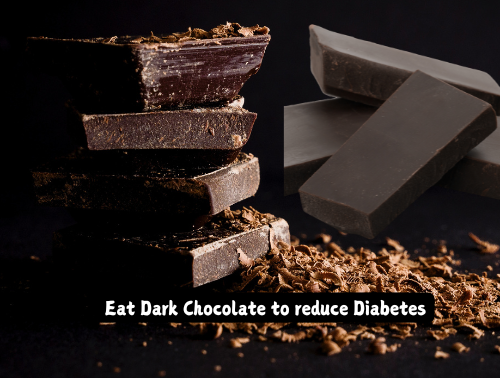A groundbreaking study from the Harvard T.H. Chan School of Public Health suggests that choosing dark chocolate over milk chocolate could be a game-changer in the fight against type 2 diabetes (T2D).
The study, published in The BMJ on December 4, 2024, underscores the health benefits of dark chocolate and illuminates the potential risks associated with milk chocolate consumption. This finding may surprise many.
Lead author Binkai Liu, a doctoral student in the Department of Nutrition, explained the findings: “Our results indicate that not all types of chocolate are equal. For chocolate enthusiasts, this reminds them that making minor adjustments, such as opting for dark chocolate instead of milk chocolate, can positively impact their health.”
Filling the Research Gap
While previous studies have explored the connection between chocolate consumption and T2D, few have discovered the differences between chocolate varieties. To address this, researchers conducted an extensive analysis using data from three long-term studies: the Nurses’ Health Studies I and II and the Health Professionals Follow-up Study.
The analysis tracked the dietary habits of 192,000 adults over 30 years, all of whom were initially free of diabetes. Participants reported their chocolate consumption and provided updates on their diabetes status and body weight. By the end of the study, nearly 19,000 participants had been diagnosed with T2D.
Approximately 5,000 of the 112,000 participants who provided detailed accounts of their dark and milk chocolate intake developed T2D.
Key Findings
The study found that participants who consumed at least five ounces of chocolate weekly had a 10% lower risk of T2D than those who rarely or never ate chocolate. However, dark chocolate proved even more beneficial. Individuals who consumed at least five servings of dark chocolate per week had a 21% reduced risk of developing T2D. Moreover, the researchers observed a 3% reduction in diabetes risk for each additional weekly serving of dark chocolate.
In contrast, milk chocolate showed no association with a reduced T2D risk. Instead, higher milk chocolate consumption was linked to long-term weight gain, a known risk factor for diabetes. Weight gain refers to the gradual increase in body weight over some time.
Polyphenols as a Protective Factor
“We were surprised by the distinct difference between the impacts of dark and milk chocolate on diabetes risk and weight management over time,” said Qi Sun, associate professor in the Departments of Nutrition and Epidemiology and corresponding author of the study.
Sun pointed out that although dark and milk chocolate have similar calorie and saturated fat levels, they are rich in polyphenols. Polyphenols are plant-based compounds in many foods, mainly fruits, vegetables, and chocolate. They are known for their antioxidant and anti-inflammatory properties. These polyphenols may offset the adverse effects of sugar and saturated fat, contributing to weight and diabetes management.
Broader Implications
The researchers noted that the study’s reported chocolate consumption was higher than national averages, suggesting that the results may not apply to individuals who consume a lot of chocolate. However, the findings provide valuable insights for those seeking healthier dietary choices.
This study could empower individuals to make informed decisions about their chocolate consumption, leading to healthier lifestyles.
As research continues, the team emphasizes the importance of understanding the health implications of different chocolate varieties. This study is just the beginning of a journey towards uncovering the potential health benefits of dark chocolate. The study also supports the growing recognition of dark chocolate as a functional food with potential benefits beyond satisfying a sweet tooth, a promising sign for the future of health-conscious chocolate lovers.
This study offers a compelling case for swapping milk chocolate for its darker counterpart—not just for its richer taste but also for its significant health benefits.
Here are other benefits of eating dark chocolate:
Recent studies have revealed the numerous health benefits of dark chocolate, with its rich polyphenol content being a standout feature. This, coupled with its lower sugar levels than milk chocolate, makes it a compelling choice for health-conscious individuals.
Reduced Risk of Type 2 Diabetes: Groundbreaking research from the Harvard T.H. Chan School of Public Health has shown that regular consumption of dark chocolate can significantly reduce the risk of developing type 2 diabetes. This finding provides reassuring confirmation of dark chocolate’s health benefits.
Dark chocolate’s association with cardiovascular benefits is well-established. Its flavonoids are crucial in enhancing blood vessel function, reducing inflammation, and maintaining healthy blood pressure, all contributing to overall heart health. Chocolate is well-known for its cardiovascular benefits of which contribute.
Mood Enhancement and Cognitive Function: Dark chocolate is also noted for its potential to boost mood and cognitive performance, partly due to its effect on serotonin and endorphin levels
Dark chocolate’s high levels of antioxidants are a powerful tool in combating oxidative stress, a key factor in aging and various chronic diseases. This underscores the significant health benefits of dark chocolate.

